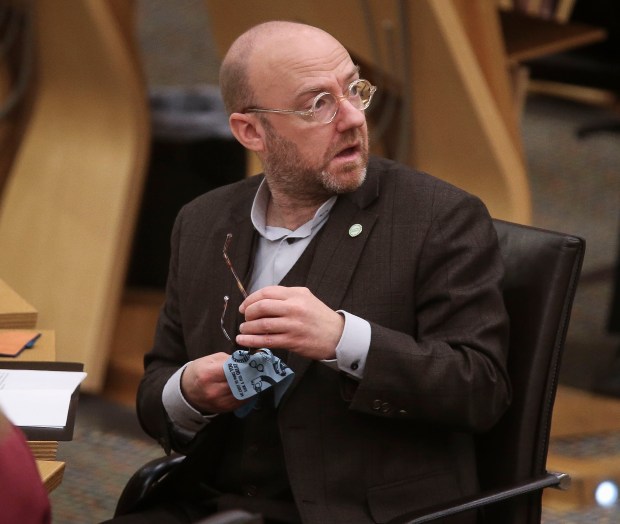Arise Sir Anthony Charles Lynton Blair, Knight Companion of the Most Noble Order of the Garter. Yes, that should give a fair few people a more punishing than usual New Year’s Day hangover. Britain’s most successful Labour leader, despised by all the worst aspects of the British character, honoured at last.
Blair made three great mistakes as prime minister: he introduced devolution, he set a target for 50 per cent of young people to attend university, and he didn’t sack Gordon Brown. For some these will render him unworthy of his knighthood. For others it will be his decision to join the United States in overthrowing Saddam Hussein, who, it transpired, no longer had stockpiles of WMDs.
There is a small thinking that afflicts Blair’s haters — a man like him doesn’t attract mere critics — and it undermines reasonable cases against him. Yes, he was unduly presidential, contemptuous of Cabinet government and scornful of Parliament. Yes, his New Labour project spun the country dizzy, disillusioned some who had stored their hopes in it, and gave birth to a ferocious new cynicism about politics. He left too much on the surface, put too much faith in language, and seldom encountered a problem he didn’t think could be solved by setting up a new quango and putting a politically on-message technocrat in charge of it.
All are sound critiques which can be buttressed with reference to his political and policy follies. But Blair Derangement Syndrome will not allow the sufferer to be quite so equanimous. The man must be a war criminal, a mass murderer, Bliar, Bush’s poodle, a bloodthirsty neocon, a Europhile traitor and the monster who introduced lying to the noble vocation of politics. That Blair is a wrong’un may be the only point of unity between lefties and Tories, Lib Dems and Scots Nats.
What explains this irrational and irrationally enduring hatred for a politician who left office 14 years ago? Blair’s gravest sin, what he cannot and must not and will not be forgiven for, is that he won. The left sees this as the ultimate betrayal. He courted and allied with the most dogged enemy of socialism: the voters. The right resented his electoral success because it confirmed that their Britain had receded and that the treacherous waves of modernity had washed over the land. Blair was and remains a focal point for the frustrations of political mythologists at a country that stubbornly refuses to vote their way.
Unable to beat him within the Labour party or at the ballot box, the left and the right are as one in their determination to trash Blair’s legacy. Doing so, however, requires them to disavow an important truth: Tony Blair was a great prime minister. Not just good, but great. Greatness isn’t judged solely and perhaps not even predominantly on policy outcomes and so we need not even broach matters like the minimum wage; civil partnerships; tax credits; paid paternity leave; free nursery for toddlers; more doctors, nurses and teachers; reductions in NHS waiting times; and children lifted out of poverty. We can contain ourselves to the qualities of leadership that saw him transform the Labour party, secure three consecutive election victories, and change the terms of debate in British politics.
Contrary to the accusations that he is intellectually shallow and believes in nothing, Blair is a thinker, albeit a practical one. He has an ‘ism’, a philosophy of politics and government that is identifiably his, and while his detractors have tried to define ‘Blairism’ as mere spin and triangulation, there is more to it than that. Blairism is an attempt to reconcile the good intentions of the Labour party with the practicalities of the market and those facts of life that are conservative. It is a set of personal instincts (respect matters, responsibility can’t be shirked, self-righteousness is self-indulgence) yoked to a political analysis (reform not revolution, modernity over tradition, openness is the future and closing up is the past) and guided by a close strategic reading of the British public.
There is vision with Blair. He saw where Labour needed to be and took it there by taking the members with him. He saw in Kosovo a resurgence of ethnic conflict in Europe and outlined his Chicago Doctrine of liberal interventionism. He saw public services that had benefited from significant injections of resource without enough in the way of reform. There is courage with him, too. It would have been easy for him to do a Schröder or a Chirac in the aftermath of 9/11 and pander to domestic anti-Americanism. He would have won plaudits from his own party, the media and the liberal intelligentsia. Instead, he stood by the US, not least over Iraq, because he considered it a moral struggle and thought by America’s side was where Britain ought to be. Approve or revile his decision, he made it aware of the political costs at home.
Though his critics will never concede the fact, Blair led with moral imagination and personal fortitude and left Britain fairer, smarter, healthier, more modern and more at ease with itself. He embedded liberal instincts about lifestyles, family arrangements and private morality that, while not unquestioned, remain undisturbed after 11 years of Tory government. In short, he made Britain modern.
Does he deserve a knighthood? Of course he does: for service to our country, for service to his party, for the wise counsel he provides on everything from the Middle East to Covid-19. The only question is why it took so long for him to become Sir Tony.
Got something to add? Join the discussion and comment below.
Get 10 issues for just $10
Subscribe to The Spectator Australia today for the next 10 magazine issues, plus full online access, for just $10.




















Comments
Don't miss out
Join the conversation with other Spectator Australia readers. Subscribe to leave a comment.
SUBSCRIBEAlready a subscriber? Log in